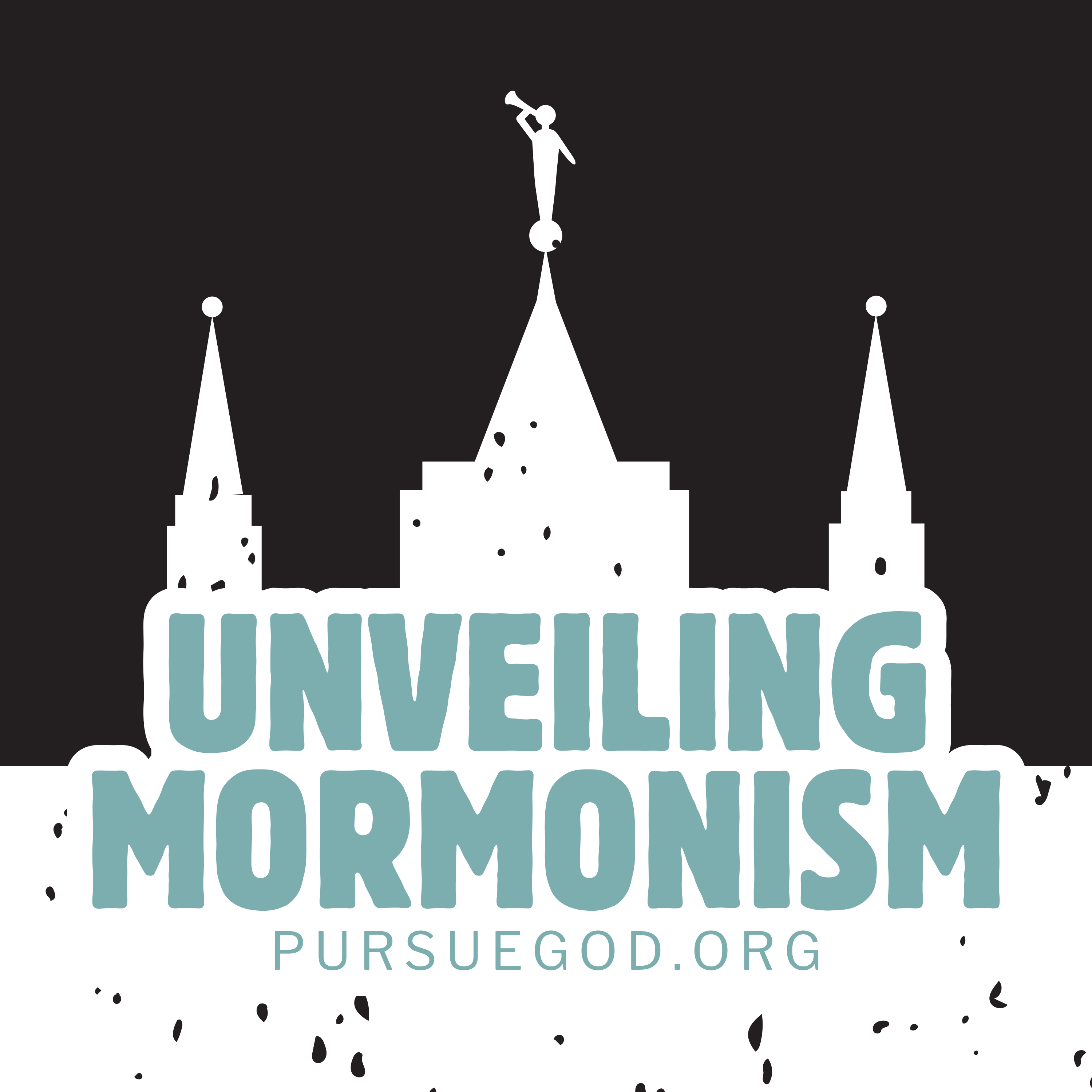From Slavery to Sonship (Galatians 4)
In Galatians 4, Paul draws a bold line between spiritual slavery and true sonship—and if you’ve ever felt trapped by religious performance like in Mormonism, this chapter is your invitation to step into the freedom of being fully adopted by God through faith in Christ alone.
--
The Unveiling Mormonism podcast pulls back the curtain on Mormon history, culture and doctrine. Join us for new episodes every Monday.
Find resources to talk about these episodes at pursueGOD.org/mormonism.
Help others go "full circle" as a follower of Jesus through our 12-week Pursuit series.
Click here to learn more about how to use these resources at home, with a small group, or in a one-on-one discipleship relationship.
Got questions or want to leave a note? Email us at podcast@pursueGOD.org.
--
Galatians 4 | From Slavery to Sonship
Theme: Freedom in Christ vs. LDS Legalism and Spiritual Bondage
Last time in Galatians 3, Paul made it crystal clear: Salvation comes by faith in Christ—not by keeping the law. Paul dismantled the idea that law-keeping could ever make someone right with God.
He pointed to Abraham, showing that even he was saved by faith long before the law was given. Paul explained that the law was like a temporary guardian or tutor, showing us our sin but never designed to save us.
The big takeaway from Chapter 3: We are made right with God by faith in Jesus Christ—not by religious performance or obedience to commandments.
Where Galatians 4 Picks Up:
Now, in chapter 4, Paul continues that argument—but he shifts the focus to something deeply relational. He introduces the beautiful truth that believers aren’t just forgiven sinners—they’re adopted children of God!
Paul uses family language—sons, heirs, adoption, Abba Father—to contrast the cold slavery of law-based religion with the warm relationship of grace-based Christianity.
This next section will especially hit home for LDS listeners, because Mormonism still keeps people under law, denies full adoption until after lifelong worthiness, and often replaces a personal relationship with God with institutional loyalty and religious performance.
Let’s dive into Galatians 4: From Slavery to Sonship.
Section 1: Galatians 4:1-7 | From Slaves to Sons: Relationship by Faith, Not Law
Paul starts with a cultural illustration. In ancient times, heirs had no more rights than slaves until their father declared them full sons.
- Jewish context: Age 12, "son of the law"
- Greek context: Coming of age around 18
- Roman context (likely Paul’s audience): The father chose the time for full adoption and inheritance
Spiritual point: Before Christ, people lived like spiritual minors—under guardianship, lacking freedom.
Galatians 4:3 says we were slaves to the basic spiritual principles of this world—elemental spiritual forces linked to pagan gods and demonic powers.
Modern LDS Parallel:
Many LDS today engage in spiritualistic practices: energy healing, chakra work, astrology apps, spirit communication, manifestation, and lightworking. Mormonism’s openness to extra-biblical revelation makes this trend possible and widespread.
God’s Rescue Mission Through Christ (Galatians 4:4-5):
Jesus came at God’s appointed time to redeem those under the law. Not just freedom from slavery—but full adoption as sons and daughters.
Result (Galatians 4:6-7):
Believers receive the Holy Spirit, prompting us to call God "Abba, Father." We are no longer slaves but God’s own children and heirs.
Contrast with LDS Doctrine:
LDS salvation is future, conditional, and performance-based. Biblical salvation is present, relational, and grace-based.
Section 2: Galatians 4:8-11 | Warning: Don’t Trade One Slavery for Another
Before Christ, the Galatians were slaves to false gods—demonic powers behind pagan religions. Now that they know God, Paul is shocked they would turn back to "weak and miserable principles."
Expositor’s Insight: Legalism and false religion are weak (they can’t redeem) and miserable (they can’t provide adoption).
LDS Application:
Mormonism today offers another powerless, performance-based religion: temple worthiness, tithing, Sabbath observance, priesthood ordinances.
Paul warns against religious calendar legalism—observing special days, months, seasons, and years—as another form of spiritual slavery.
Section 3: Galatians 4:12-20 | Paul’s Pastoral Plea: Don’t Turn on the Messenger
Paul reminds the Galatians how they once welcomed him like an angel, despite his illness. But now, because he’s telling them hard gospel truth, they’re treating him like an enemy.
Joseph Smith Parallel:
Paul’s words fit what Joseph Smith did—alienating people from gospel-preaching churches and setting himself up as the only voice of truth, introducing a new legalistic, works-based system.
Paul expresses deep emotional pain, longing for Christ—not law—to be fully formed in them.
Evangelical Reflection:
Christians today don’t want to win arguments with Mormons—we want them to experience true spiritual rebirth.
Section 4: Galatians 4:21-31 | Two Covenants: Hagar (Law) vs. Sarah (Promise)
Paul uses the story of Abraham’s two sons:
- Hagar represents the Old Covenant, law, slavery, and earthly Jerusalem.
- Sarah represents the New Covenant, promise, freedom, and heavenly Jerusalem.
Key spiritual point:
Ishmael was born by human effort (law and works), Isaac was born by supernatural promise (grace and faith).
LDS Application:
Mormonism is modern Hagar:
- Founded by human effort and Joseph Smith
- Built on law, temple covenants, priesthood ordinances, and works righteousness
Biblical Christianity is Sarah:
- Supernatural, Spirit-born
- Resting on God’s promise of salvation through Christ alone
Paul ends with a strong command: "Cast out the slave woman and her son… we are not children of the slave woman but of the free woman."
Evangelical Call to LDS Listeners:
Leave Mormonism’s slavery. Embrace spiritual freedom, adoption, and grace through faith in Christ alone.
Chapter 4 Summary for Mormons:
LDS Religion:
- Man-made, law-based, performance-driven
- Founded by human effort (Joseph Smith)
- Requires obedience to ordinances and priesthood covenants
- Keeps people enslaved under weak and miserable principles
Biblical Christianity:
- God-made, grace-based, Spirit-born
- Founded on Christ’s finished work
- Offers adoption and freedom the moment you trust Christ
- Grants full sonship and inheritance through the Holy Spirit



